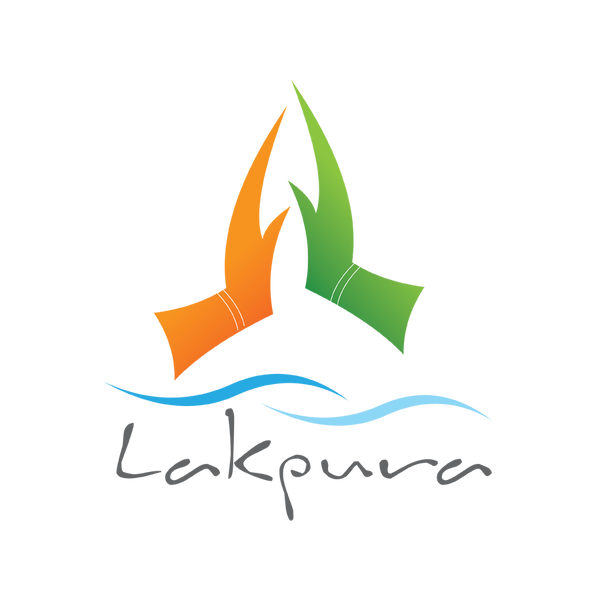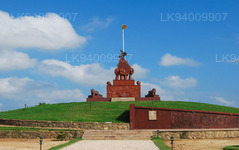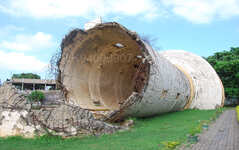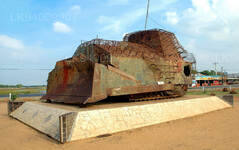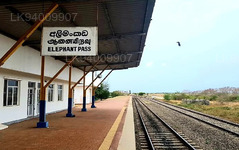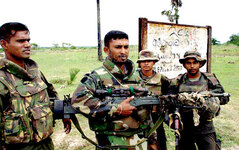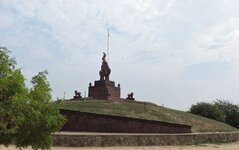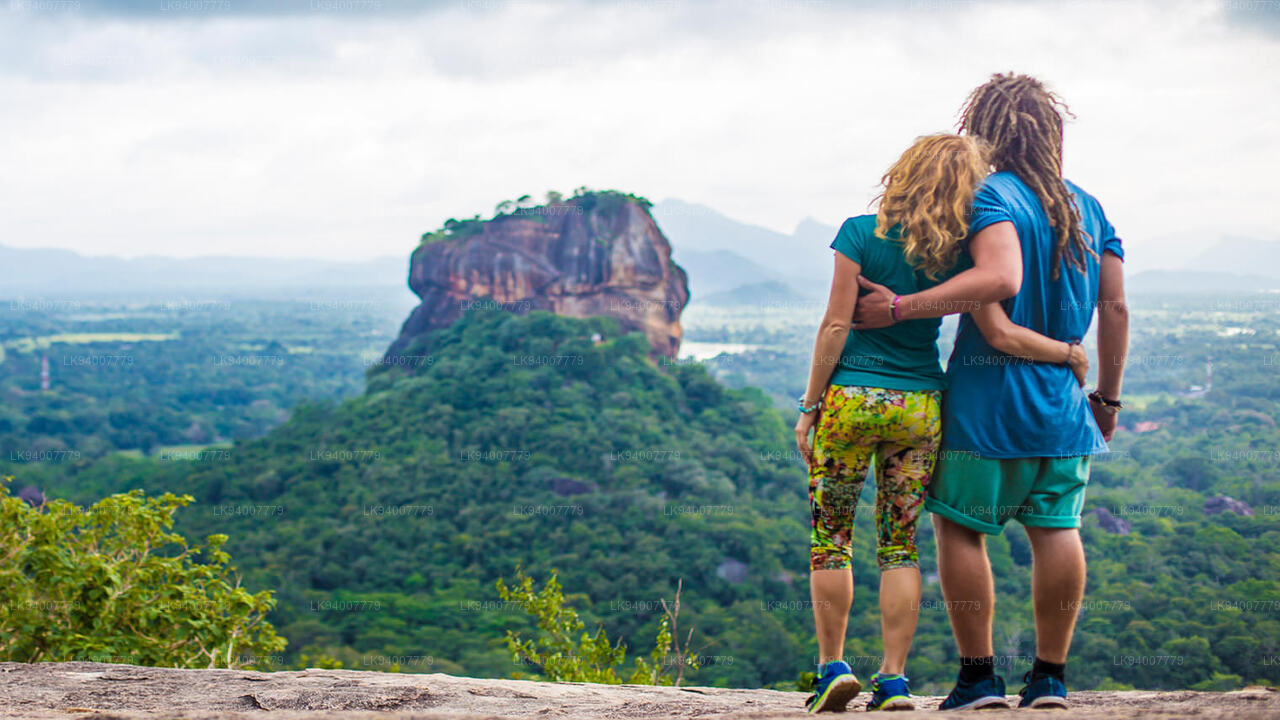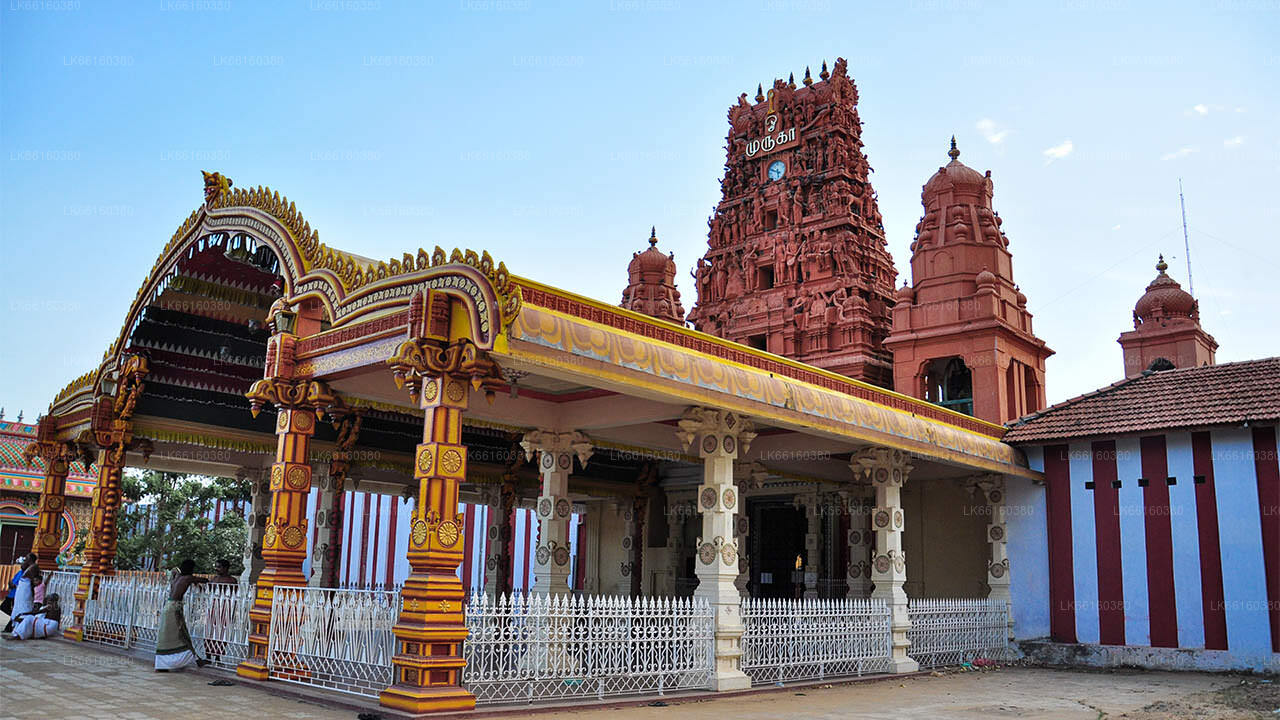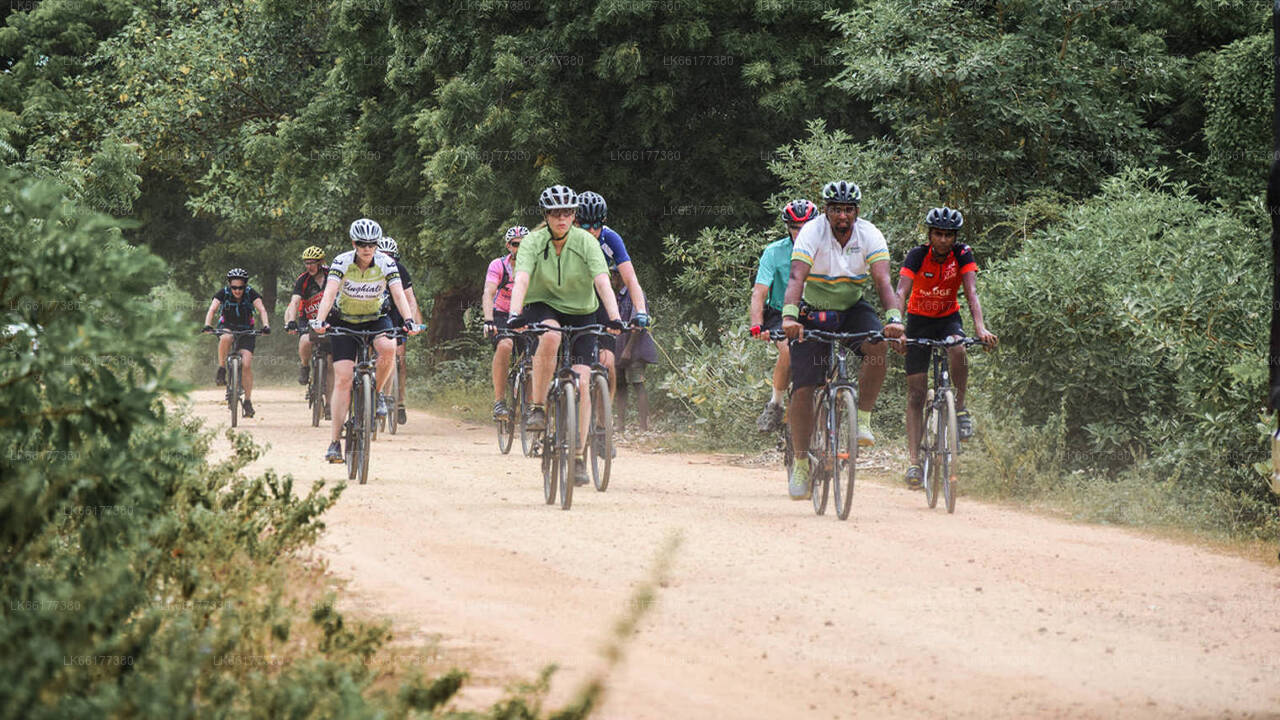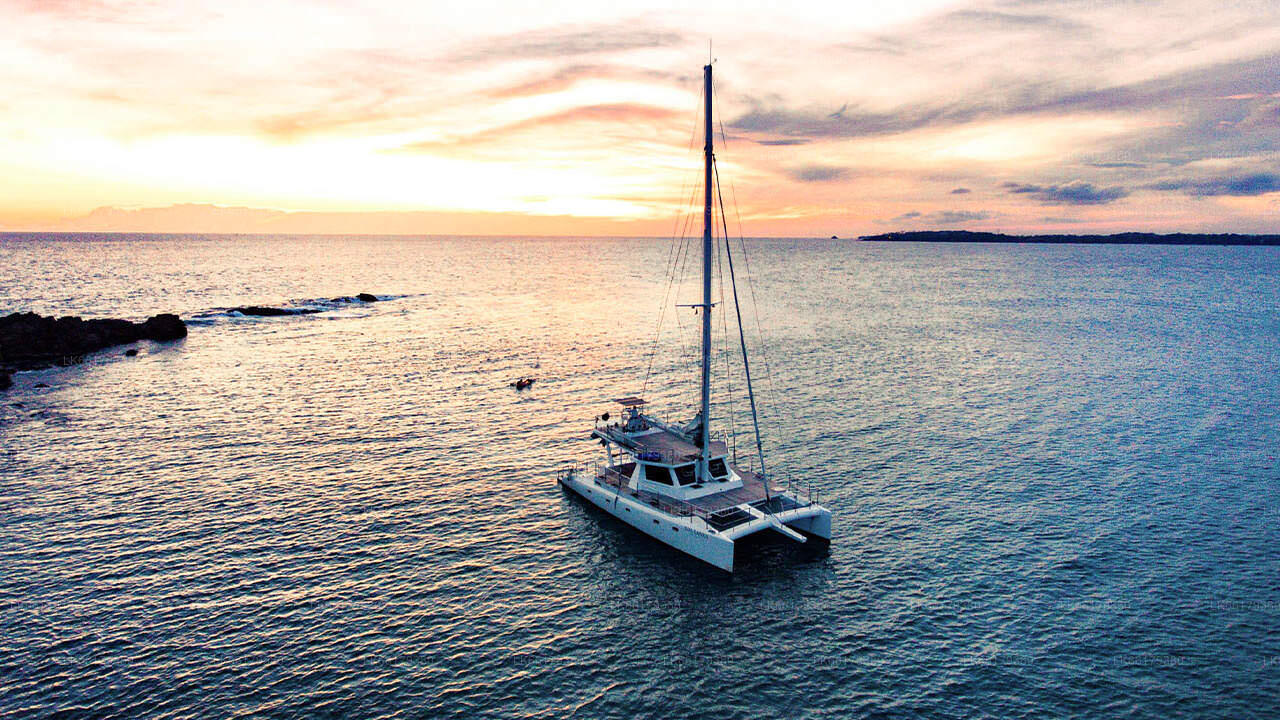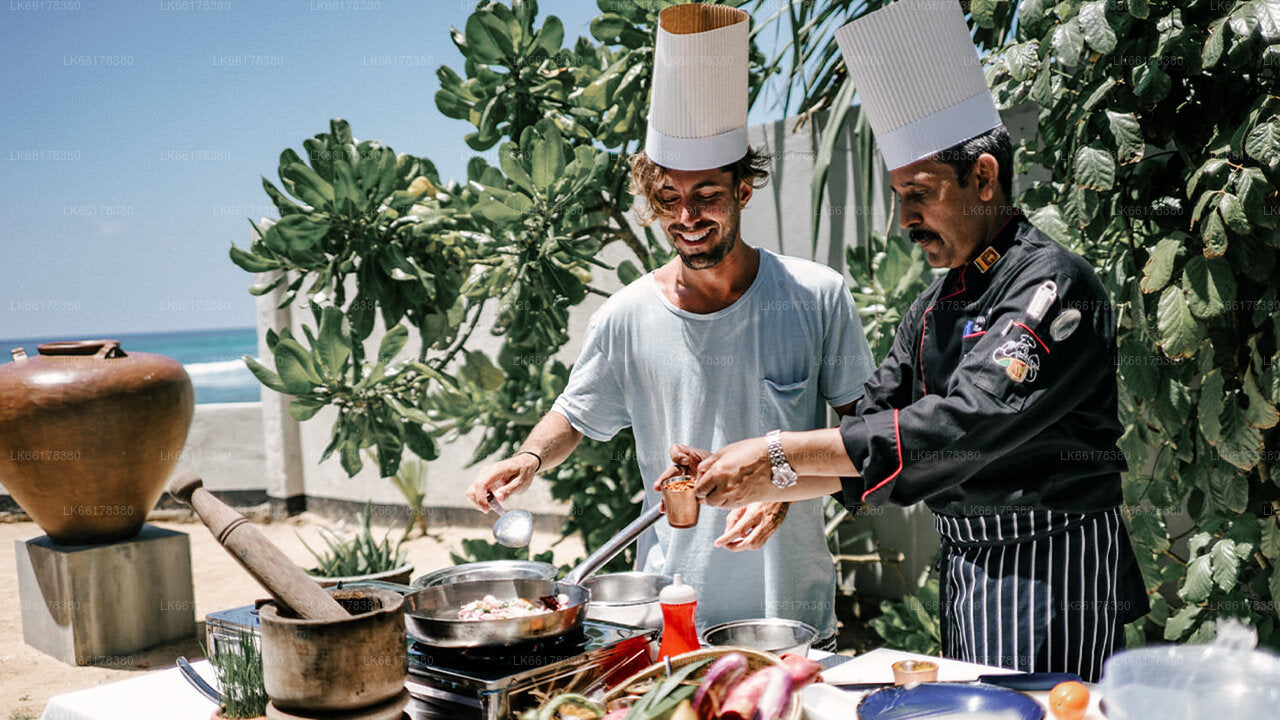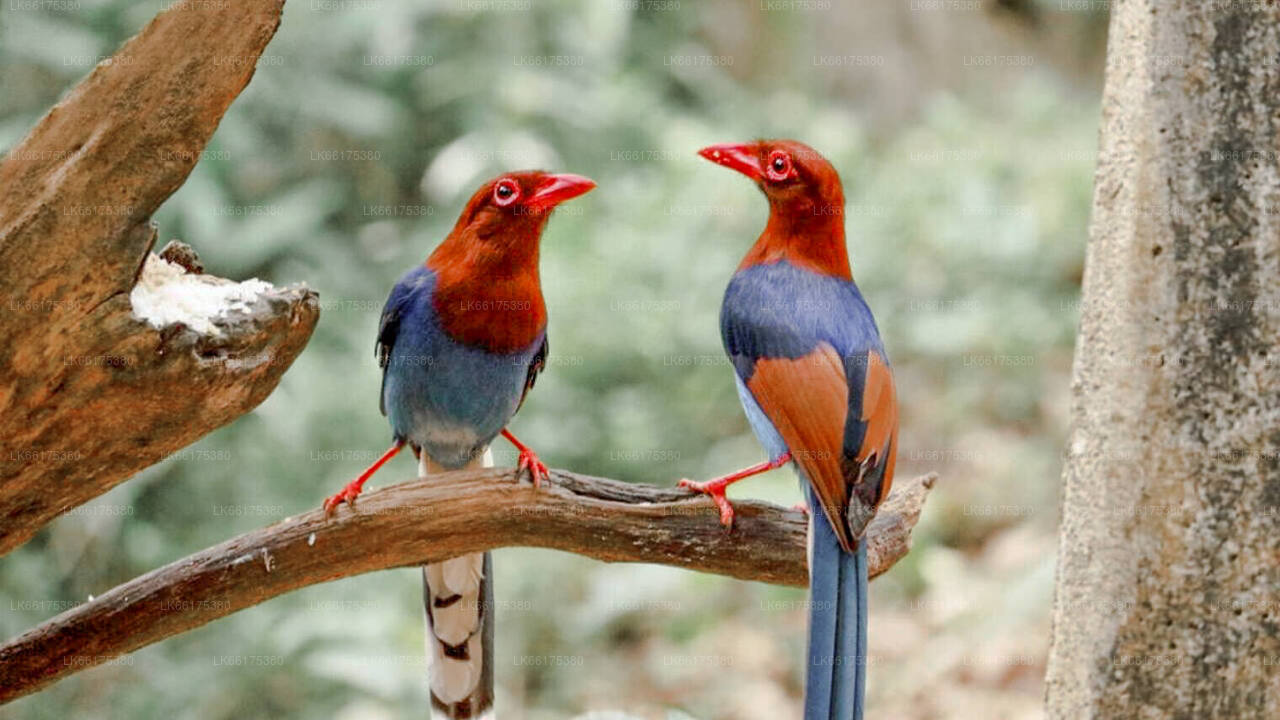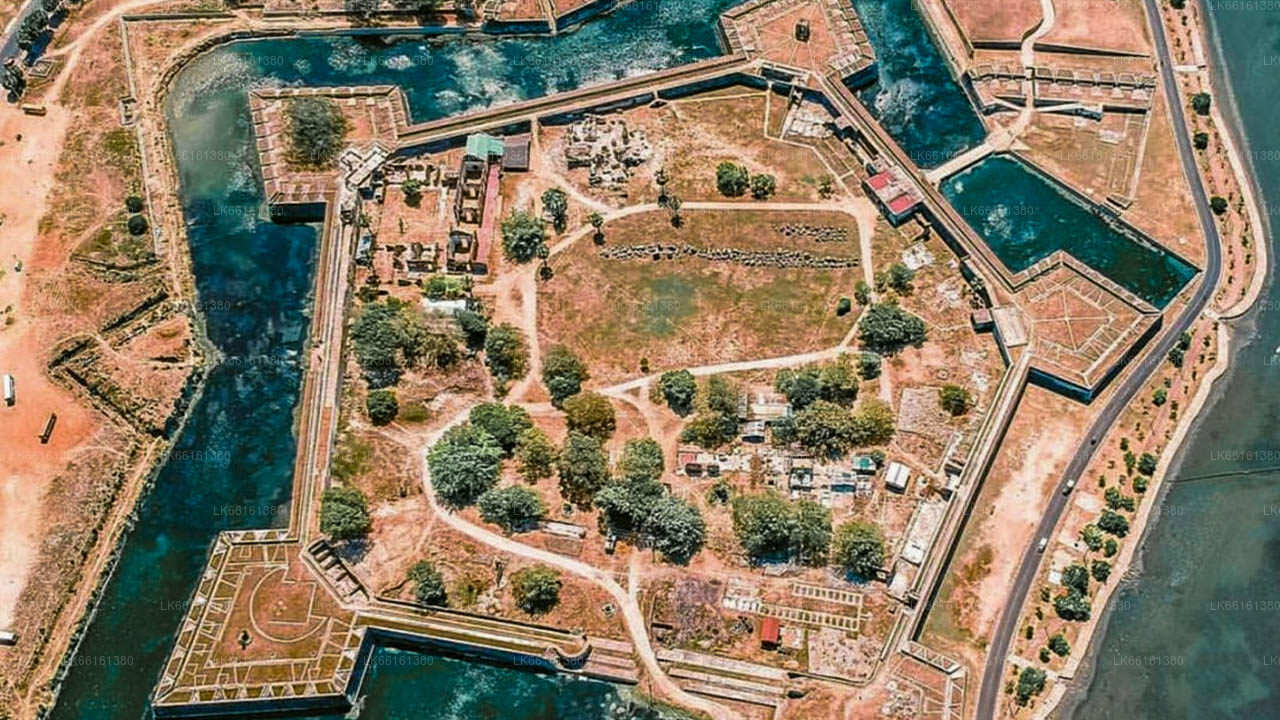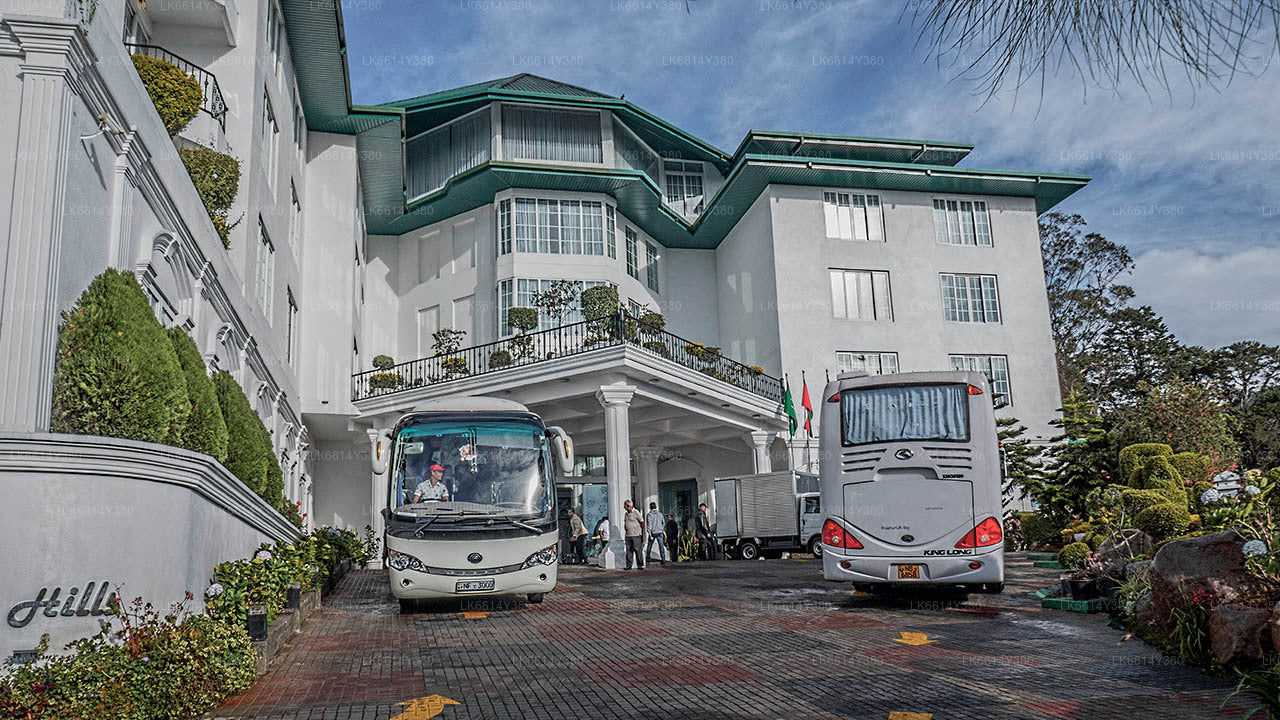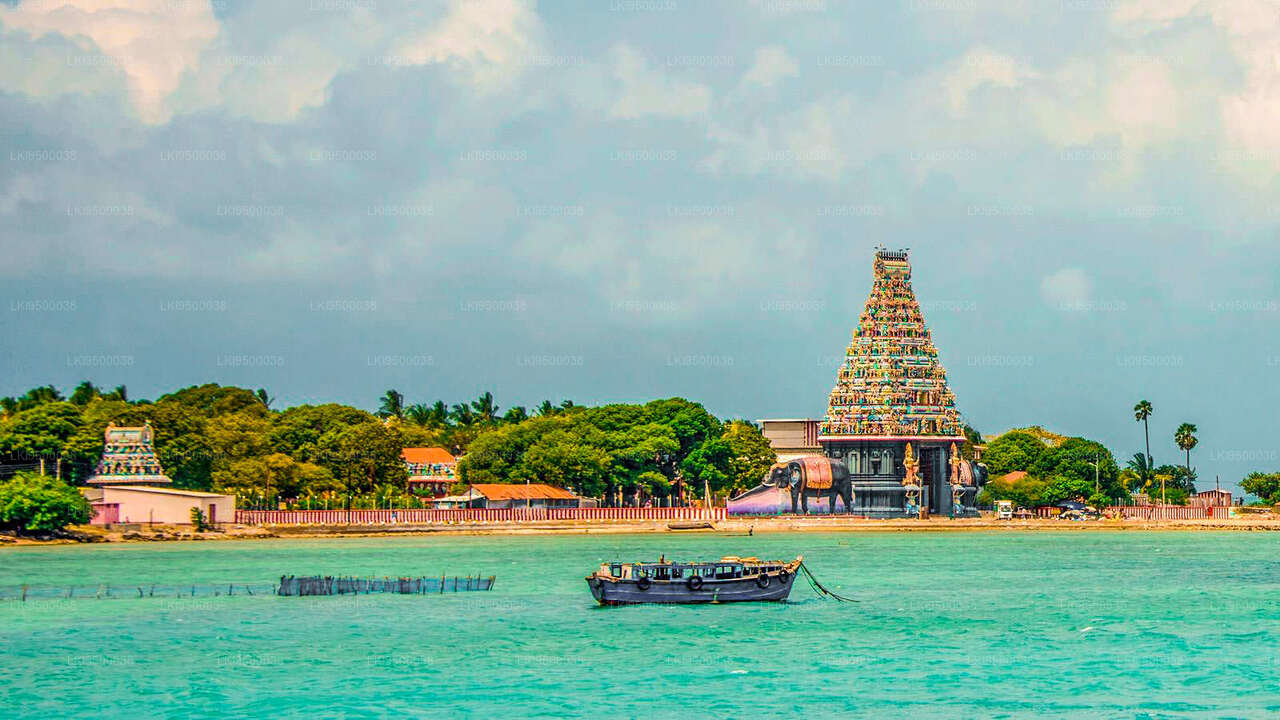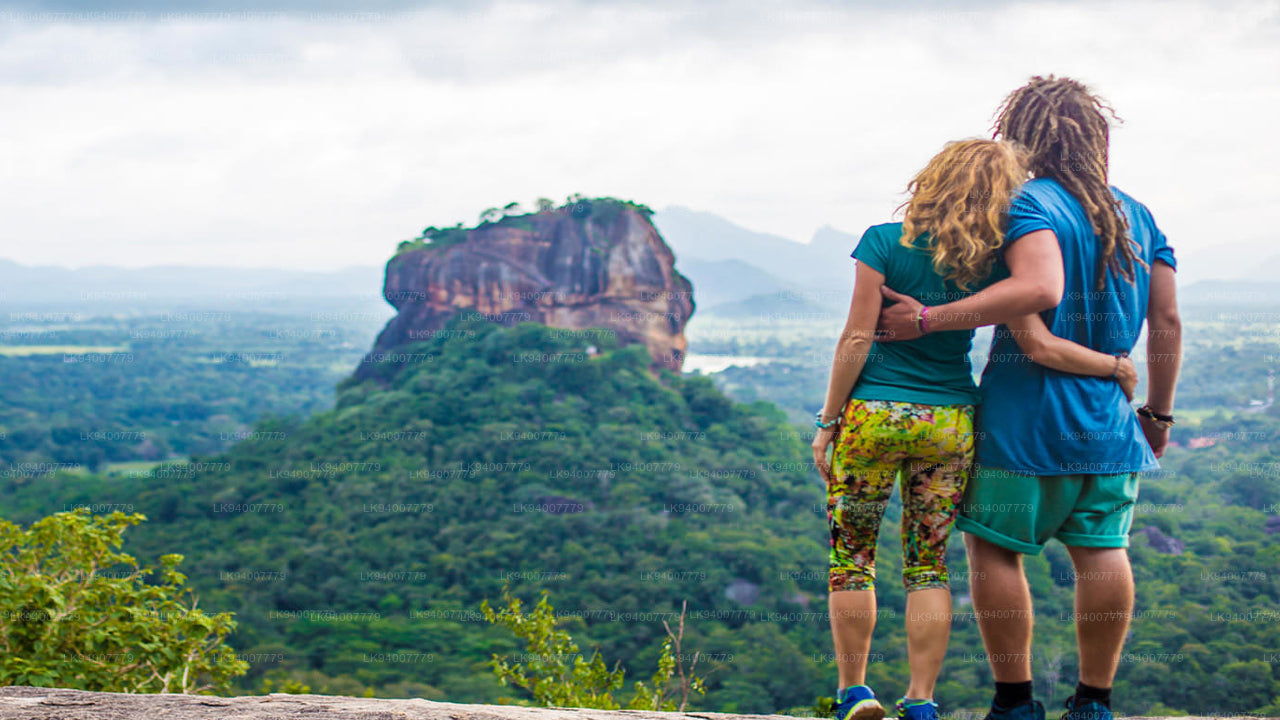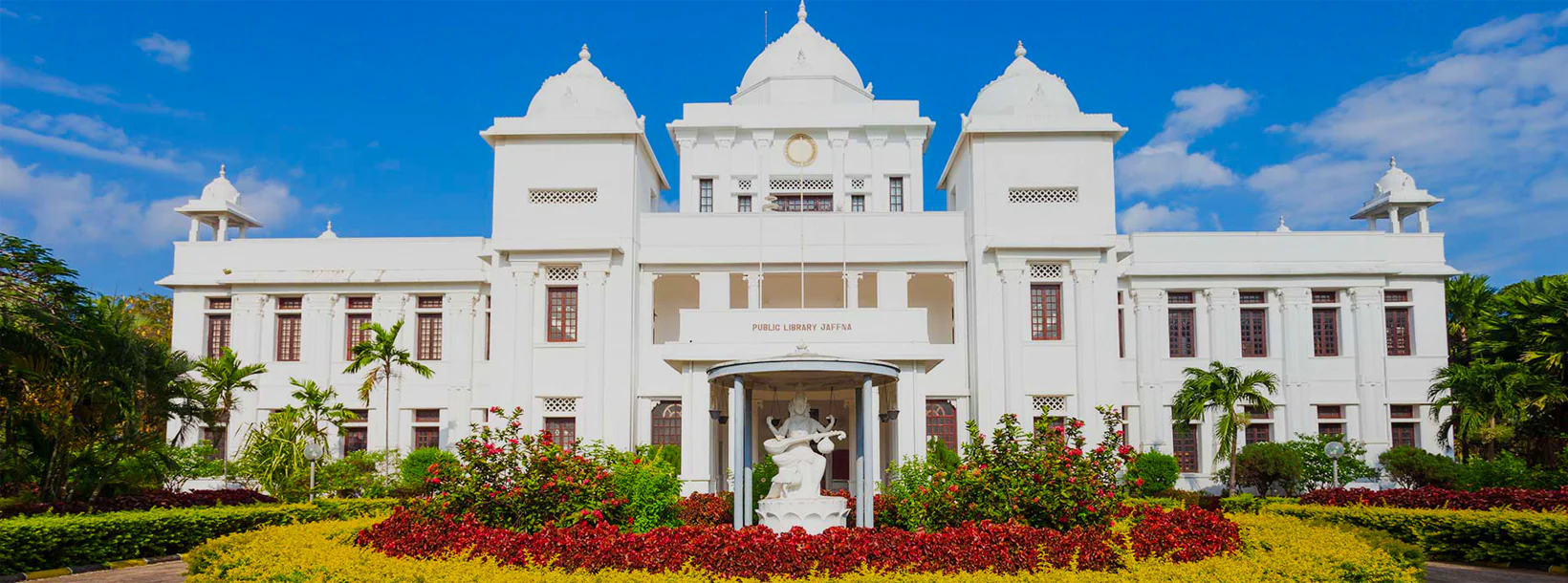
Jaffna City
Jaffna is the main city of Jaffna peninsula in the northernmost district of Sri Lanka. Comfortable intercity busses from Colombo take 10-12 hours to reach the city of Jaffna.
Elephant Pass
Elephant Pass, Northern Province, Sri Lanka is located in the gateway of Jaffna Peninsula. There are about 340km north from capital to here. It has an important military base and used to be the island's largest salt field. It has regularly been the site of battles during the civil war.
Elephant Pass is beautifully described by the author Kalki Krishnamurthy in his much acclaimed Tamil Novel Ponniyin Selvan. Elephant Pass has been a strategic military base since 1760, when the Portuguese built a fort, which was later rebuilt and garrisoned by the Dutch in 1776 and later by the British. A modern military base was built there in 1952 by the Sri Lankan Army (SLA). At one time, the base and its outlying camps expanded to cover an area 23 kilometres (14 mi) long and 8 kilometres (5.0 mi) wide.
Elephant Pass is a historically and strategically significant isthmus located in the northern province of Sri Lanka, connecting the Jaffna Peninsula with the rest of the island. This narrow strip of land, bordered by the lagoon on one side and the Bay of Bengal on the other, has been a critical point in both ancient and modern times, often serving as a gateway and battleground during various conflicts.
The name 'Elephant Pass' is believed to derive from the times when elephants from the dry zone in the southeast were transported to the Jaffna peninsula through this route. It has also played a pivotal role in many military strategies due to its geographical positioning as the narrowest land-based route to the Jaffna Peninsula, making it a frequent site of conflict during the Sri Lankan Civil War.
Today, Elephant Pass is visited not only for its historical significance but also for its unique natural beauty. The area offers panoramic views of the surrounding lagoon and sea, and its relatively remote location makes it a peaceful spot, away from the more tourist-heavy areas of the country. Visitors can explore the remnants of old fortifications and memorials that stand as somber reminders of the past battles.
The Elephant Pass War Memorial, erected to commemorate the lives lost during the conflicts, is a significant landmark. It provides visitors with insights into the region's tumultuous history and serves as a place for reflection and remembrance.
For those interested in wildlife and natural scenery, the nearby landscapes and water bodies provide habitats for a variety of bird species, making it a promising destination for bird watching. The area's stark, serene beauty, combined with its deep historical roots, offers a unique and enriching experience for travelers looking to understand more about Sri Lanka's complex history and diverse ecosystems.
Elephant Pass controls access to the Jaffna Peninsula, therefore it is referred to as the Gateway to Jaffna. It is very crucial as it is on the isthmus connecting the peninsula to the Sri Lankan mainland, and to territory in the Southern Jaffna peninsula. Elephant Pass connects the militarily significant town of Chavakacheri in the Jaffna peninsula to the Sri Lankan mainland.
About Jaffna District
Jaffna is the capital city of the Northern Province, Sri Lanka. 85% of the populations of the Jaffna and Kilinochchi districts are Hindus. The Hindus follow the Saivite tradition. The remainders are largely Roman Catholics or Protestants, some of whom are descendants of colonial settlers, known as Burghers. The Tamils are divided along caste lines, with the farmer-caste Vellalar forming the majority. Sea products, red onion, and tobacco are the main products in Jaffna.
Jaffna is home to beautiful Hindu temples. An Old Dutch Fort still stands well preserved within which is an old Church. Another example of Dutch architecture is the King's House. No visit to Jaffna is complete without tasting the exquisite Jaffna mango, reputed for its sweetness. About 3 km away is the majestic Nallur Kandaswamy Temple, home to the largest religious festival in Jaffna. The Kayts Harbour is an ancient ship docking site in the Jaffna region.
About Northern Province
The Northern Province is one of the 9 provinces of Sri Lanka. The provinces have existed since the 19th century but they didn't have any legal status until 1987 when the 13th Amendment to the 1978 Constitution of Sri Lanka established provincial councils. Between 1988 and 2006 the province was temporarily merged with the Eastern Province to form the North-East Province. The capital of the province is Jaffna.
Northern Province is located in the north of Sri Lanka and is just 22 miles (35 km) from India. The province is surrounded by the Gulf of Mannar and Palk Bay to the west, Palk Strait to the north, the Bay of Bengal to the east and the Eastern, North Central and North Western provinces to the south.The province has a number of lagoons, the largest being Jaffna Lagoon, Nanthi Kadal, Chundikkulam Lagoon, Vadamarachchi Lagoon, Uppu Aru Lagoon, Kokkilai lagoon, Nai Aru Lagoon and Chalai Lagoon.Most of the islands around Sri Lanka are to be found to the west of the Northern Province. The largest islands are: Kayts, Neduntivu, Karaitivu, Pungudutivu and Mandativu.
The Northern Province's population was 1,311,776 in 2007. The majority of the populations are Sri Lankan Tamils, with a minority Sri Lankan Moor and Sinhalese population. Sri Lankan Tamil is the major language spoken in the province by the vast majority of the population. The other language spoken is Sinhala by 1 percent of the population. English is widely spoken and understood in the cities.
